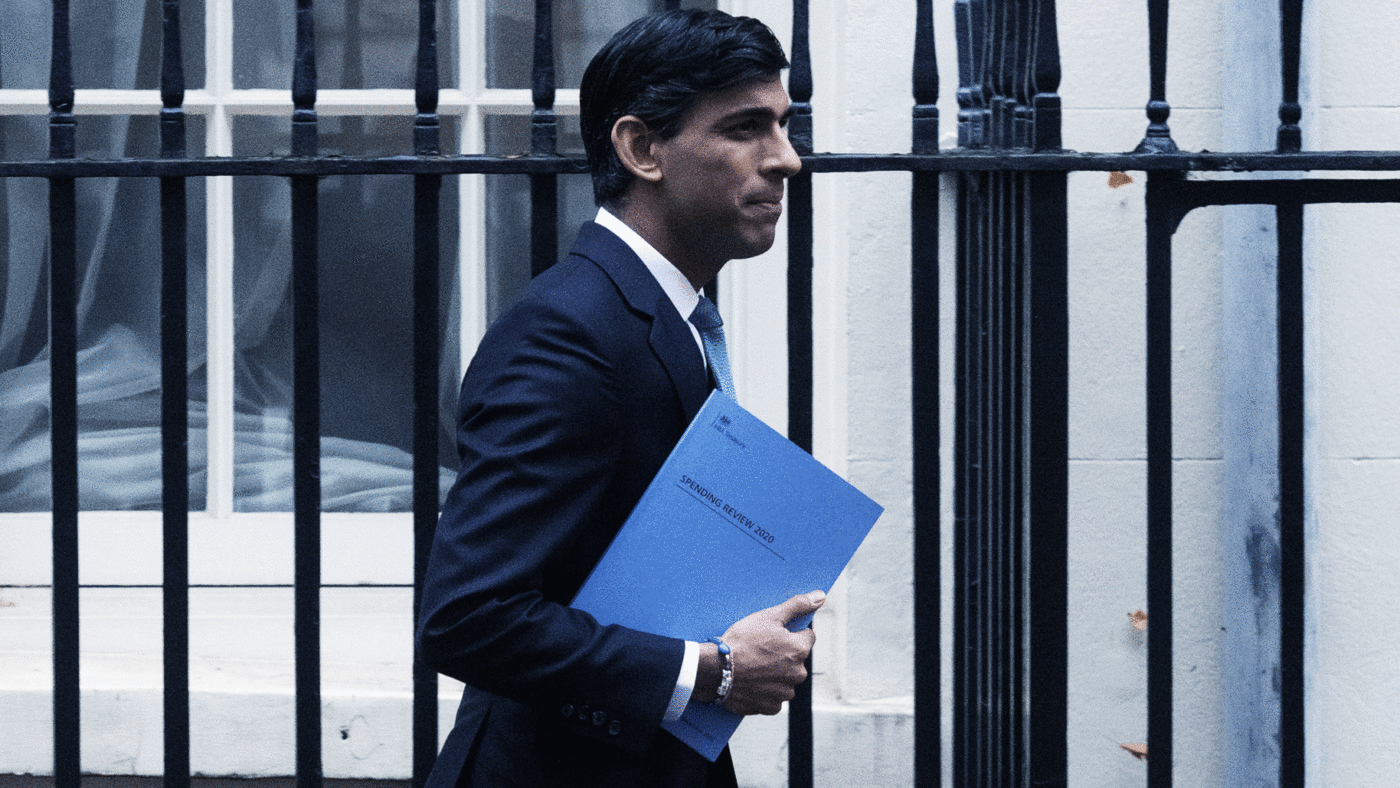I’m only just coming to terms with how cross I am about the Chancellor’s speech today. This should have been a relatively uneventful one-year Spending Review, setting departmental limits for 2021-22, and summarising the latest economic and fiscal forecasts from the OBR. But, in my opinion, Rishi Sunak made two big mistakes.
First, he got the tone completely wrong. He kicked off with the dire warning that “our economic emergency has only just begun”. How does this help to boost the confidence of consumers and businesses who are already depressed enough?
The claim is not even right. Economic activity was already rebounding more quickly over the summer than most had expected. Even now, the economic hit from the second lockdown appears to be smaller than feared, based on early evidence such as the IHS Markit PMI and the CBI’s Distributive Trades Survey.
Presumably, the Chancellor felt he had to acknowledge the downbeat forecasts from the OBR. But these were not as gloomy as they might have been either.
For example, he noted that ‘the OBR forecast the economy will contract this year by 11.3%, the largest fall in output for more than 300 years’. Again this is the wrong emphasis. No-one was in any doubt that this year would see a massive hit. But the OBR’s latest forecast is actually not as bad as the 12.4% decline in the ‘central scenario’ published in the ‘Fiscal Sustainability Report’ in July.
Admittedly, the OBR is now forecasting a slower recovery, with output in 2025 still around 3% smaller than expected in the March Budget. But these projections (which are little more than guesswork) still mean growth of 5.5% next year and 6.6% in 2022 – a clear turnaround, rather than a continued ‘economic emergency’.
Of course, it is the outlook for jobs that really matters. Here the Chancellor chose to emphasise that the OBR expects unemployment to rise to a peak of 7.5% – or 2.6 million people – in the second quarter of next year. But as recently as this summer, the OBR was forecasting a peak of more than 10%, so this is a huge improvement.
The Chancellor did at least make the point that unemployment in the UK is likely to remain well below that in many other countries. Nonetheless, surely the stronger point is that UK unemployment is likely to be a lot lower than feared here too.
The OBR has nudged up its forecast for government borrowing this year to £394 billion, compared to £372 billion in August. But a difference even of £22 billion is well within the margin of error.
This brings me to what I believe is the second mistake: penny-pinching. There is a compelling case for being tougher on public sector pay (as argued by the Centre for Policy Studies) and for reforming the foreign aid budget, but the Chancellor’s announcements here fell between two stools.
On pay, there will be a one-year freeze for public sector workers, except for those earning less than £24,000 and those employed in the NHS. This is incoherent. It will take spending power out of the economy at a time when the Chancellor should be doing all he can to support demand. The decision to exempt those on lower incomes does at least recognise this, but I doubt the ‘marginal propensity to consume’ of those earning £30,000 is much different from those earning £23,000.
Indeed, supporters of a pay freeze can’t have it both ways. Either this is a big saving to the Treasury, in which case it must also have a big impact on consumer spending, or it is only a small saving, which would simply undermine the case for doing it.
Certainly, it makes no sense to exempt higher-earning doctors or NHS managers from pay restraint. This is virtue-signalling, not good economics.
The temporary reduction in the target for foreign aid from 0.7% of GDP to 0.5% (until ‘the fiscal situation allows’) is hard to justify too. This will also save a few billion, but it’s not a good look for one of the world’s richest countries to be cutting aid to some of the poorest in the midst of a global crisis, let alone at the same time as we are about to take the presidency of the G7, host a global climate change conference, and launch ‘Global Britain’.
Yes, capping public sector pay and trimming foreign aid may be popular with certain newspapers and even large swathes of the electorate. But just because something is popular doesn’t mean it’s right. A policy based on making sure that teachers, police officers, and poor people in Africa and Asia, suffer at least as much as those in the UK private sector is, at best, ‘levelling down’ and, at worst, plain vindictive.
Above all, it is simply incorrect to claim that sticking to commitments made on public sector pay and foreign aid would mean that we cannot afford to provide as much support to the rest of the economy. When borrowing is already close to £400 billion, finding even £20 billion of temporary savings is unlikely to make a difference to the fiscal position in the longer term. But if anything, the negative impact on confidence could actually do more harm than good.
Sorry, Chancellor, I think you’ve got this one badly wrong.
Click here to subscribe to our daily briefing – the best pieces from CapX and across the web.
CapX depends on the generosity of its readers. If you value what we do, please consider making a donation.


